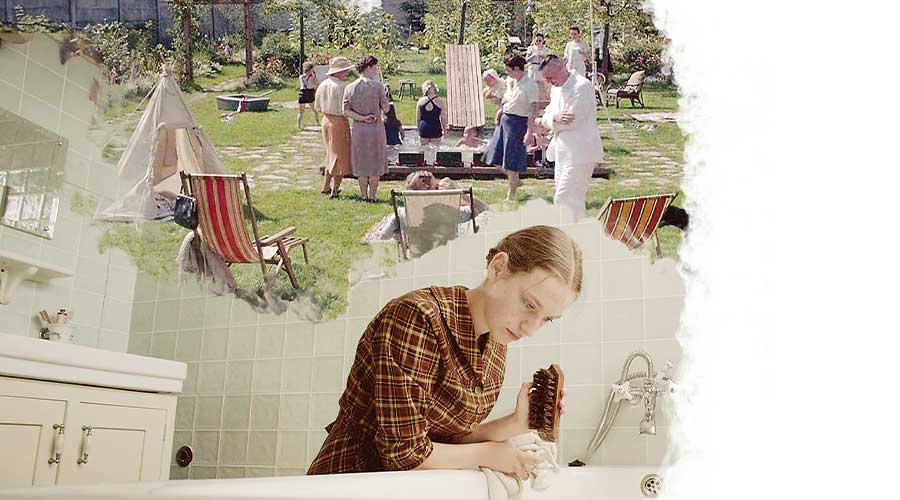What’s to watch on Netflix?
- 20 Apr - 26 Apr, 2024

Hannah Arendt called it “the banality of evil”; screenwriter-director Jonathan Glazer captures it, in this harrowing, disturbing film about life’s quotidian routine adjacent to the unspeakable horrors of the Auschwitz concentration camp. That routine belongs to the Höss household, Rudolph (Friedel) and wife Hedwig (Hüller), their five children, their dog and their countless servants, at least some of which have been borrowed from the camp next door, identifiable by their timidity and their uniforms.
Rudolph Höss (based on the real guy) is the commandant of Auschwitz, and has perfected the exercise of exterminating the Reich’s unwanted, including Jews, Poles, Romans, etc – enough to get him noticed in Berlin. And to draw to his side engineers offering prototypes of the latest chimneys, which can work non-stop, through control of temperature and air flow.
Conversations such as this happen next door to where Rudolph’s wife and children are going about their daily work, of play, school, training for induction into Hitler Youth, gardening, and gossip, as Hedwig and the other wives gush over the latest possessions, that once belonged to the rich Jews being gassed next door, to have fallen into their laps.
If Rudolph has earned his stripes with the typical German efficiency for detail, Hedwig feels she has done her part too, turning the house into a slice of “paradise” – of white linen (any soot scrubbed off), of clean shoes (any blood washed outside), lake-side picnics, canoe rides, strudel meals, and her particular pride, a garden. It is full of flowers, vines, vegetables, a green house, even a beehive, topped by a swimming pool and deck chairs. Rows of neat flowers and a pathway separate the garden from the boundary it shares with the concentration camp, topped by barbed wire. Soon enough, the vines will cover the whole wall, Hedwig assures her visiting mother.
It’s clear how much this life of dreamy comfort means for the mother and daughter. Without saying much, Glazer gets across that it has been a hard life, and that but for the war and its windfall, Hedwig may have been a cleaning lady like her mother. The mother, in fact, wonders once if the Jewish woman she worked for is among those in the camp across, her only regret being that she could not win her curtains in an auction.
Based very loosely on a book by Martin Amis of the same name, The Zone of Interest wants us to think once, twice, and again, how easy it is for evil to thrive among us, and for us to turn a blind eye. How it is “normal” people such as us who allowed the unthinkable to happen, and could as easily allow it again. How mass killing can be reduced to a pedantic bureaucratic exercise of working out the perfect crematorium, and mass looting to an expensive fur coat, that “just needs some washing and mending”.
And yet, evil clings to us like shadow too, much as it does the Hösses. It hangs over them in the form of chimneys belching smoke and often fire; it enters their home in the form of sounds of shootings, cries, clanging machines, and often screams. It washes against them in the form of bones and ash on a dip in the nearby lake (followed by frantic, panicky washing). It chases them in the form of fear in the eyes of their servants; and it clings to them like the lipstick Hedwig finds in her new fur coat, that won’t rub off. It haunts their future in the form of the games their children play, with extracted teeth. It inhabits their home in the form of their daughter who sleepwalks; and it won’t let them alone in the form of their constantly irritable youngest child and their restless dog, the infant and the animal sensing what others won’t say.
The evil even pollutes the dreams the Hösses had once, in their teens, long before the war started, of raising a farm. Both, Rudolph and Hedwig show that love of nature, the irony being that it is only living with death – in the rural outposts of the East, as Hitler demanded of his followers – that has allowed them the luxury to nurture it.
Nominated for five Oscars, including Best International Film and Best Motion Picture, The Zone of Interest can be faulted for almost entirely excluding the horror of Holocaust in favour of just suggestion of it. There is a Polish Jew family that appears briefly, but Glazer does absolutely nothing with them but lip-service, though in a visual flourish, when they step outside their home, they are projected as thermal images – the only things shining in the dark.
COMMENTS